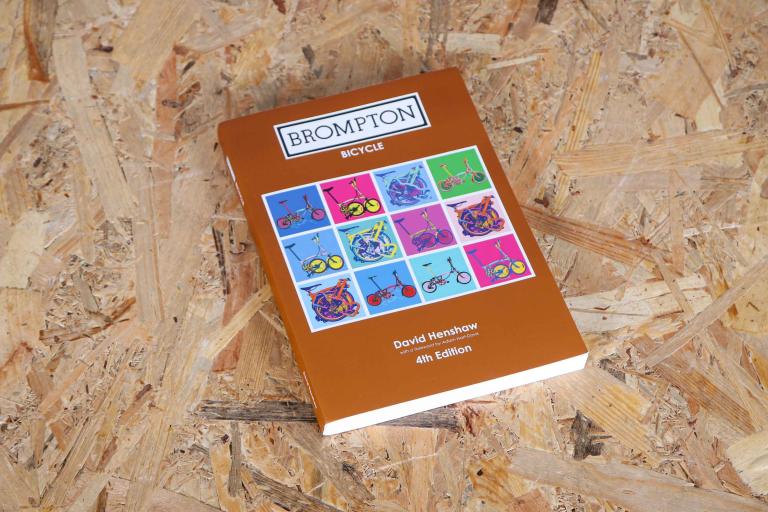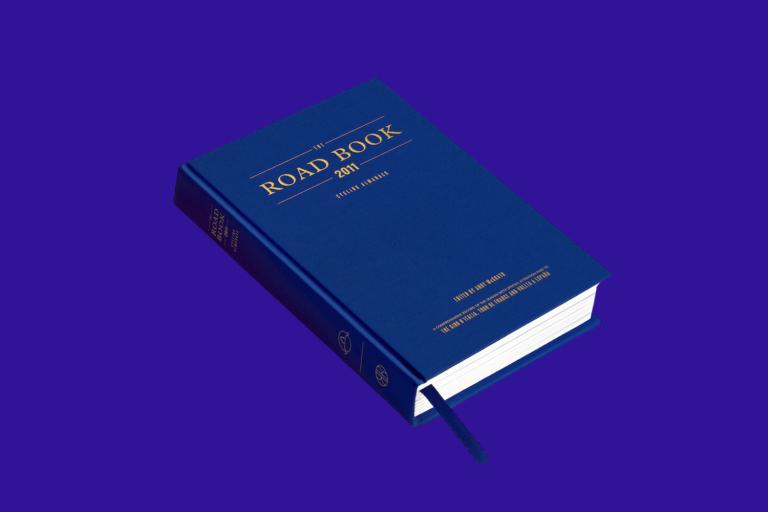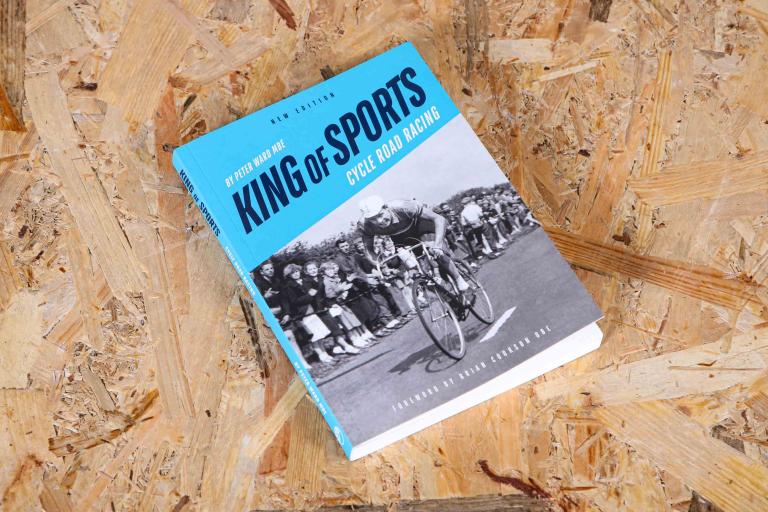- News
- Reviews
- Bikes
- Components
- Bar tape & grips
- Bottom brackets
- Brake & gear cables
- Brake & STI levers
- Brake pads & spares
- Brakes
- Cassettes & freewheels
- Chains
- Chainsets & chainrings
- Derailleurs - front
- Derailleurs - rear
- Forks
- Gear levers & shifters
- Groupsets
- Handlebars & extensions
- Headsets
- Hubs
- Inner tubes
- Pedals
- Quick releases & skewers
- Saddles
- Seatposts
- Stems
- Wheels
- Tyres
- Tubeless valves
- Accessories
- Accessories - misc
- Computer mounts
- Bags
- Bar ends
- Bike bags & cases
- Bottle cages
- Bottles
- Cameras
- Car racks
- Child seats
- Computers
- Glasses
- GPS units
- Helmets
- Lights - front
- Lights - rear
- Lights - sets
- Locks
- Mirrors
- Mudguards
- Racks
- Pumps & CO2 inflators
- Puncture kits
- Reflectives
- Smart watches
- Stands and racks
- Trailers
- Clothing
- Health, fitness and nutrition
- Tools and workshop
- Miscellaneous
- Buyers Guides
- Features
- Forum
- Recommends
- Podcast
review
 The Complete Book of the Tour de France
The Complete Book of the Tour de France£25.00
VERDICT:
Brings a lot of useful information together in one convenient package, though there's little new here
Weight:
953g
Contact:
At road.cc every product is thoroughly tested for as long as it takes to get a proper insight into how well it works. Our reviewers are experienced cyclists that we trust to be objective. While we strive to ensure that opinions expressed are backed up by facts, reviews are by their nature an informed opinion, not a definitive verdict. We don't intentionally try to break anything (except locks) but we do try to look for weak points in any design. The overall score is not just an average of the other scores: it reflects both a product's function and value – with value determined by how a product compares with items of similar spec, quality, and price.
What the road.cc scores meanGood scores are more common than bad, because fortunately good products are more common than bad.
- Exceptional
- Excellent
- Very Good
- Good
- Quite good
- Average
- Not so good
- Poor
- Bad
- Appalling
Claiming to be "the essential companion to the greatest cycling race on earth", Feargal McKay's Complete Book of the Tour de France is a substantial book that gives some key facts and figures for the first 100 editions of le Tour, along with a necessarily brief narrative about each race.
While le Tour may indeed be the greatest cycling race, one could dispute the claim that this book is essential, or even complete. It is however a very convenient record of past races, and it certainly contains a lot of the facts and figures that such a race produces. Here are some examples of what you get:
- The name of every stage winner and yellow jersey winner for every day of every race
- The basic time and distance statistics for every stage
- Where relevant, a note of any major climbs on the stage, and who led the race over each one
- The top 10 riders in the final general classification
- The final winners of whichever other jerseys or competitions were being contested in that year (which has varied over the years), including the team prize
- Last but not least, the winner of the Lanterne Rouge (couldn't resist that one!) Incidentally, should such a competition really have a 'winner'? How about the 'holder' of the title?
The facts continue at the back of the book with some further information, such as which individual and nation has won the greatest number of each jersey, the greatest number of participations in a cyclist's career, or the region of France to host the greatest number of Grand Departs. Given that the book came out just before the 2014 race, it became out of date almost immediately, and will only become more so. The book is referred to as the 2014 edition, but there have been no previous editions, and there are no definite plans to produce a new edition immediately.
As you can imagine, after 100 editions of the race there is a lot of data available. However, in order to make the book "more than a dry compendium of names and numbers" there is also a three or four page summary of each year's race. The extensive bibliography is evidence of considerable thought going into those few pages. However, since "the story of each tour could easily fill a book on its own", this narrative has to be selective about what can be covered, and the issue of doping gets a great deal of that coverage.
The author's stance is that "doping did not begin with the Festina affair and end with Lance Armstrong". Matters may be improving, but we are not at the point where "not every stunning performance is immediately met with questions about doping." Equally, just as it seems that you can't talk about cycle racing without mentioning doping, you certainly can't refer to doping without mentioning Lance Armstrong.
Throughout the book Lance's name remains, but it has been crossed out (using a single strike-through), with a note that the position has been "vacated" with no other name given. Others have been similarly erased, such as Albert Contador and Stefan Schumacher, but in most cases there is a replacement name. One of those replacement names is Alejandro Valverde. Has le Tour got it right with this policy, or has it got itself into a muddle because we did not know all of the facts at the time, and probably still don't have the complete picture?
Each year's race has a chapter to itself, and every chapter has a title – and those titles could be the basis for a whole new game called 'Guess the year'. It would be quite a task to encapsulate each of the 100 races into a handful of words, but the job has been done well. Some are obvious, such as Death on the Mountain for 1967. Others are almost ambiguous, such as The Big Con: 2005 was the year chosen for that one. I thought that something to do with 8 seconds would be a certainty for 1989, but since Thirty-Eight seconds had been used for 1968 they went with A Game of Chess instead.
Verdict
Brings a lot of useful information together in one convenient package, though there's little new here
road.cc test report
Make and model: Aurum Press The Complete Book of the Tour de France by Feargal McKay
Size tested: Paperback
About the tester
Age: 55 Height: Weight:
I usually ride: My best bike is:
I've been riding for: Over 20 years I ride: Every day I would class myself as: Expert
I regularly do the following types of riding: commuting, touring, club rides, sportives, general fitness riding,
Latest Comments
- Pub bike 29 min 59 sec ago
St Margaret's Church in Altrincham, sponsored by the Daily Telegraph.
- Fatbagman 31 min 41 sec ago
The truth according to Armstrong, like most sociopaths, is quite different from any form of reality.
- pockstone 35 min 8 sec ago
Indeed, and in my defence I do think two missing apostrophes and a misspelling are far outweighed by that increasingly prevalent mangling of...
- mark1a 47 min 33 sec ago
I'm just someone on the internet with an opinion like everyone else here!...
- Secret_squirrel 1 hour 4 min ago
Why has such a fugly and massive rear light got such poor run times? My tiny Flare RT has 12hrs at 45 lmns.
- GMBasix 1 hour 31 min ago
Bronze = lasts longer than a cable tie
- Secret_squirrel 1 hour 40 min ago
You're missing the point. The cassette is unforgiveable when aimed at this market and the width of the tyres not much better. You shouldnt have...
- Secret_squirrel 2 hours 21 min ago
Its tragic but worth noting that this is just statistics playing out. Same happens at most mass participation sports events. The London Marathon...
- Hirsute 4 hours 25 min ago
I'd find a physio who would have a look. They will do tests to determine where the issue lies, the extent of mobility and maybe some exercises....
- Miller 4 hours 30 min ago
An uh-oh email signifying that it took Tadej Pogacar to dethrone you, that's pretty impressive. You'd want to keep that email.




Add new comment
1 comments
I think the book is a solution to a problem that doesn't really exist, and is sort of redundant given the wealth of information online. Can't even say that the printed format offers anything given how common and handy tablets are. It's like an old-fashioned trainspotters log book!